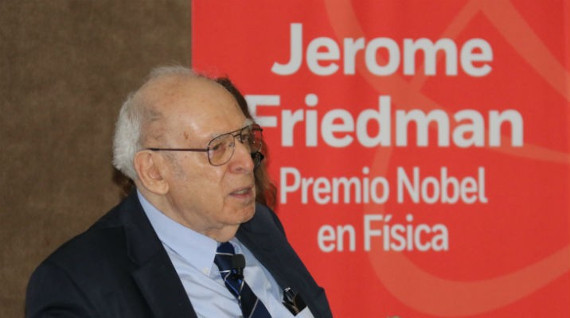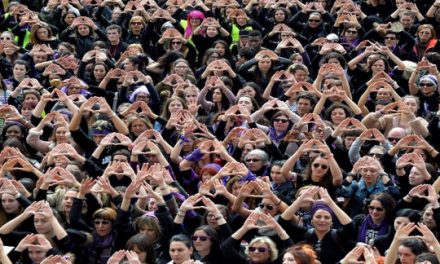The Nobel prize and academician Jerome Friedman wondered in CosmoCaixa what really is the smallest element of matter
Jerome Isaac Friedman, Nobel prize in Physics in 1990 and honorary academician of the Royal European Academy of Doctors-Barcelona 1914 (RAED), participated this April 26 in the cycle “La ciencia vista a través de los ojos de Premios Nobel” (Science seen through the eyes of Nobel laureates), held at the CosmoCaixa in Barcelona organized by the Obra Social La Caixa and RAED, with the conference “¿Estamos realmente hechos de quarks? Are we really made of quarks?”, where he asked if the smallest part of matter, the quark, cannot hold even smaller elements.
Friedman, awarded by the Swedish Academy for his empirical demonstration of the existence of quarks, wonders whether inside these fermions, considered the smallest elementary particles that exist, doesn’t hide something else. “The latest discoveries of the European Organization for Nuclear Research (CERN) confirm the real existence of these particles, but are there more particles within the quarks? We don’t know”.

Dr. Jerome Isaac Friedman
“In any case, quantum physics tells us that these hypothetical particles would be confined by an extremely powerful force, more than 100 million times stronger than we know, and what we still have to discover in particle physics is more than that we know today”, considers the academician of honor.
Three other Nobel laureates and honorary academicians of the RAED have already participated in the CosmoCaixa cycle: Aaron Ciechanover and Ada Yonath, Nobel prizes in Chemistry, and Richard Roberts, Nobel prize in Medicine. “La ciencia vista a través de los ojos de Premios Nobel” will conclude on June 7 with the participation of the Nobel prize in Physics and also honorary member of the Royal Academy Sheldon Glashow, who will present the work “Descubrimientos accidentales en la ciencia” (Accidental discoveries in science). Ciechanover, Yonath, Neher and Friedman himself have also participated in the “Talento Nobel” (Nobel Talent) cycle, organized in Seville by the Cajasol Foundation and the Royal Academy.



